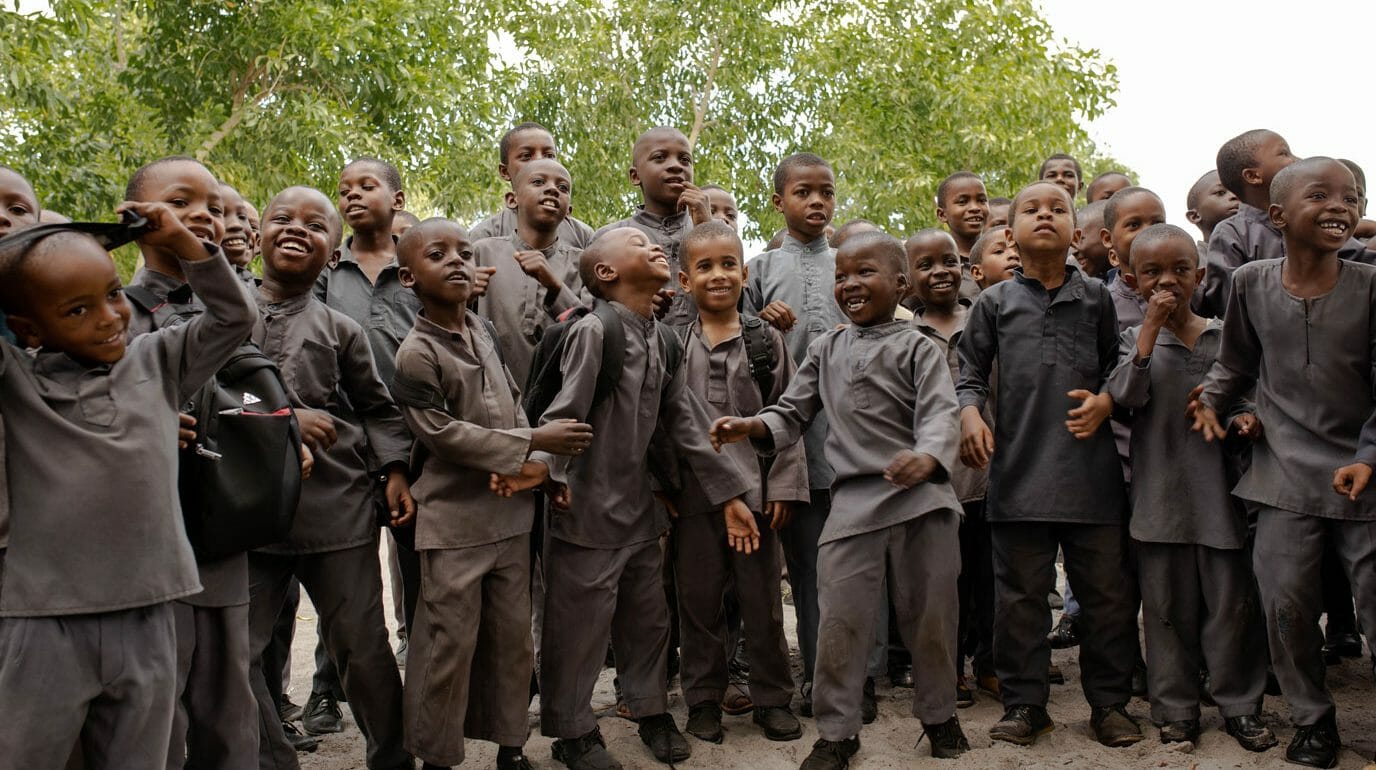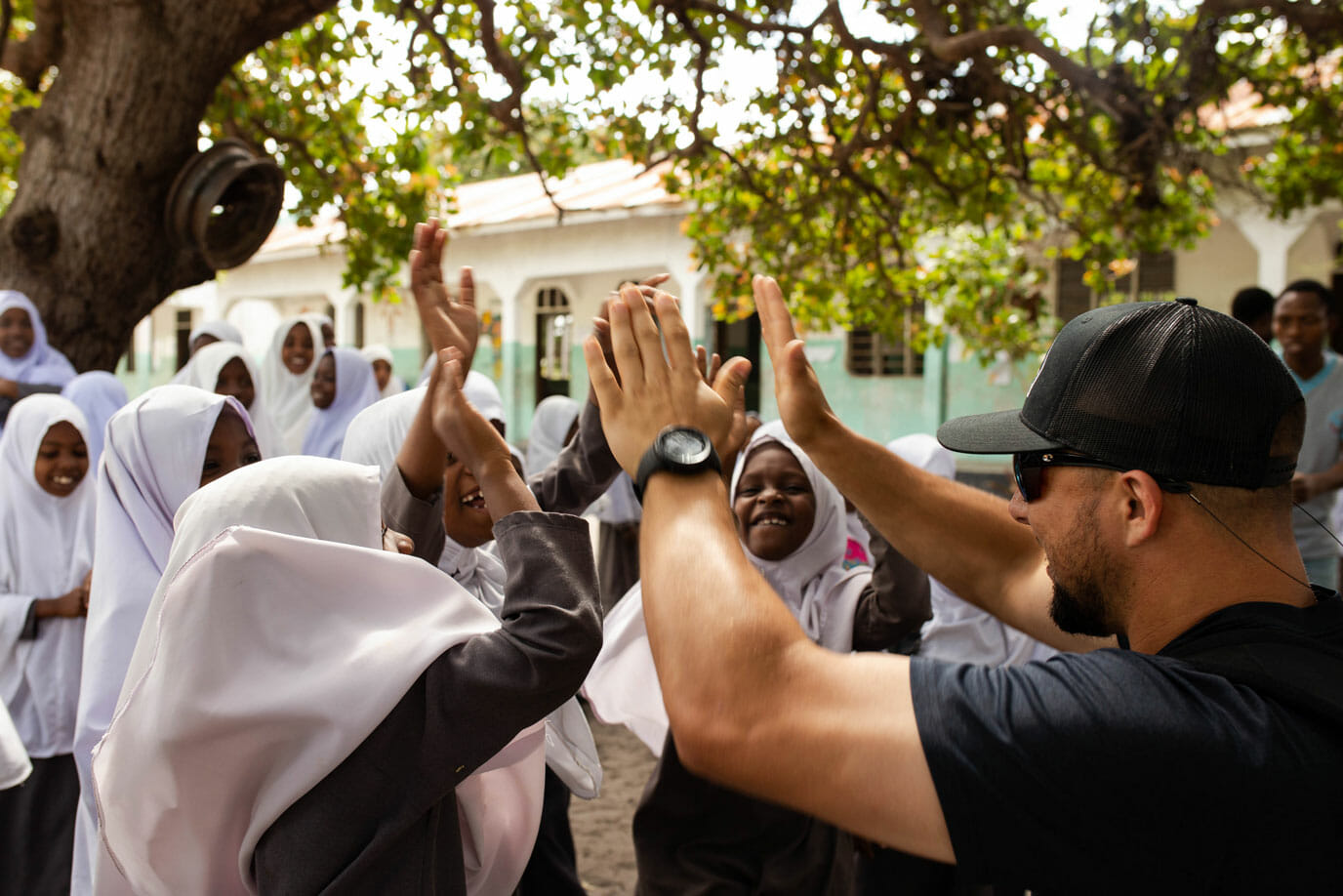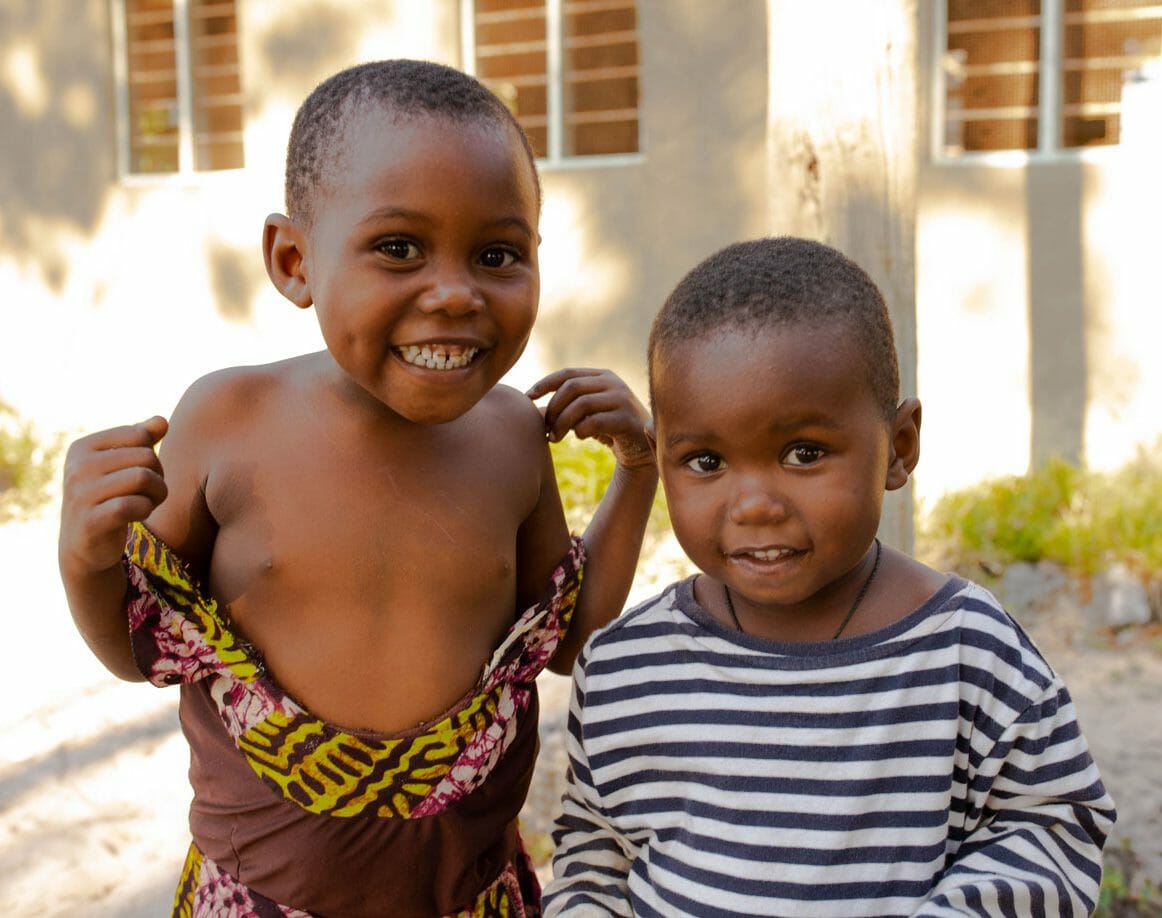Photography by Chelsea Langley
Currently serving as full-time missionaries to Mafia (an island just off the coast of Tanzania, Africa), Tori and Alix Rasmussen reveal how the principles of generosity span near and far, and how the support of Lakelanders has played a pivotal role in their global initiatives.
No doubt about it, there’s something special about Lakeland. Roughly 40 miles east of “the most magical place on earth,” among abundant oaks and towering palms, amidst the sparkling waters and ethereal swans, one will find a vibrant city bursting at the seams with creativity, history, and, most importantly, hope.
Lakeland is home to a wealth of philanthropic initiatives and entrepreneurial endeavors, but the true magic of our dear swan city can be found in the boundless spirit of generosity among its people; people whose stories have created greater opportunities for us to exercise generosity each day, raising awareness on important issues around the world and moving us toward action.

I have witnessed the powerful generosity of this community and the far-reaching impact their actions have made around the world. Recently, I had the opportunity to sit down at Hillcrest Coffee with two fellow Lakelanders who have dedicated their lives in order to make a positive global impact.
Propelled by a clear vision, Tori willingly gave up multiple full rides to colleges around the country for an opportunity to study theology at Southeastern University (SEU) in Lakeland.
Tori and Alix Rasmussen currently serve as full-time missionaries to Mafia, an island just off the coast of Tanzania, Africa. Tori was born in Nairobi, Kenya, and spent part of his life in the far west of Tanzania in a town called Kigoma. Raised by two loving and faith-filled parents, his family placed a great emphasis on giving what they had to empower the community around them.
“My grandfather and my father have always been the sort of people who live on 10 percent and give away 90 percent,” Tori says. With the selfless influences of his father, a missionary; and grandfather, a pastor in rural Minnesota, he learned first-hand that choosing to become a pastor would be more than a simple career choice; it would mean a commitment to living a life of constant generosity.
Though Tori ultimately chose to follow in his father’s footsteps and become a missionary as well, the decision didn’t come easy. “Growing up, I really struggled with knowing what I wanted to do with my life. I was always so afraid that I would pick the wrong career, or go down the wrong life path, and then regret it later on in life,” he says.
When Tori was 16 years old, his family moved to New York City. Then, at 20, Tori returned to Africa for eight months to work with a certain tribe in Tanzania. It was during that time when he chose to become a missionary.
“It wasn’t until I was back in Africa working that I knew I was going to work with unreached people groups in some capacity for the rest of my life. I knew I was going to be a missionary from that point on, and I haven’t wavered from it since,” says Tori.

“Many times it felt like we were on a spiritual respirator. The church was our support, breathing for us.” – Alix
Propelled by a clear vision, Tori willingly gave up multiple full rides to colleges around the country for an opportunity to study theology at Southeastern University (SEU) in Lakeland. To this day he admits, “It’s one of the better life choices I made.” His time in Lakeland and at Southeastern continues to have positive ripple effects throughout his life and career.
Years after graduating from Southeastern, Tori and a group helped build a 72-mile road through extremely dense brush in the Kigoma region of Tanzania. In 2013, SEU produced a documentary which highlighted the project. It was a grueling process that ultimately granted the locals greater access to healthcare, public transport, and an easier way to transport their goods to the market.
“The relationships I made in Lakeland and around the world, while attending SEU, have continued to have a profound impact on my life, even to this day,” says Tori. “Yes, I learned valuable life skills at SEU, however, it was the people I befriended that have been the most influential in my life ever since.”
And that’s no exaggeration. It was during his time at Southeastern University that Tori was first introduced to his now-wife, Alix, a vibrant woman with a passion for missions and a deep love for people.

Tori and Alix have chosen to live a life of generosity as full-time missionaries, grounded in the unshakable principles of their faith.
Alix was born in small-town Iowa but had lived in different parts of Florida all her life. Though she grew up stateside, missions still played a vital role in her family. Her grandparents served as missionaries, and her parents led countless mission trips over the years.
“As soon as I got interested and started doing missions, they were immediately for it,” Alix says.
After spending one year away at a college in Ohio, Alix then transferred to Southeastern University in pursuit of her degree in missions. “I knew, almost immediately, that it was a perfect fit for me,” Alix says. It wasn’t long thereafter that her family chose to make Lakeland their home as well. “It’s become a family thing now. My parents now have jobs at Southeastern, and my youngest brother went to Southeastern as well.”
Tori and Alix have chosen to live a life of generosity as full-time missionaries, grounded in the unshakable principles of their faith. Their most recent projects include opening a youth center in Mafia.
“There will be sports fields (soccer, basketball, volleyball, netball, tennis, etc.), a recreation hall, two classrooms, and an auditorium,” says Tori. “We hope to provide tutoring, host sports leagues, and create teams, so the youth have a place to excel academically and belong to a community.”

“We hope to provide tutoring, host sports leagues, and create teams, so the youth have a place to excel academically and belong to a community.” – Tori
The addition of the youth center is a part of their goal to renovate local elementary schools. “We plan to raise $10,000 USD for each school on Mafia [32 schools in total]. We will use the money in whichever area needs the most help renovating [school toilets, roofs, floors, windows, furniture, etc.]. This will continue school by school until we have renovated all 32 schools on the island,” says Tori.
While undeniably rewarding, their missionary journey has not come without its fair share of challenging times.
This past year while in Mafia, Tori and Alix had a close friend in the ministry set out to join them. However, while traveling to the island, he was lost at sea. “For two weeks we were looking for him,” says Alix. “To this day he has never been found. We found his boat, but we never found him. Losing J.R. was a ministry crisis, personal crisis, and logistical crisis.” This news rocked them both to the core. But it was their faith in God and the generosity of the local community that kept them grounded during this tragic event. “Many times it felt like we were on a spiritual respirator. The church was our support, breathing for us,” says Alix.
It begs the question, how do we grieve while still being a blessing to other people? What role does generosity play in the grieving process? Tori believes, “You can’t put things on hold in order to navigate difficult times. I think civil servants and ministry people feel this tension the most. We must keep carrying on, learning to experience grief while still being available to serve others.”
An often unspoken truth necessary to sustaining a generous lifestyle is learning to receive generously as well. Tori says, “You must allow people to be gracious and minister to you as well. There is no person that can only give, give, give. You must be ready to receive when you are going through a grieving period.”

“The relationships I made in Lakeland and around the world, while attending SEU, have continued to have a profound impact on my life, even to this day.” – Tori
The couple’s extensive experience ministering to unreached people groups in Africa has taught them first-hand how the principles of generosity span across cultures, religions, and geographic locations.
“The importance of giving of yourself is also the same in every people group,” says Tori. “Everyone in the world needs to be more loving and generous, and they can be more loving and generous. Everyone in the world needs to be more selfless, and they can be more selfless. None of us are at the place we’d like to be, or should be — but we all ought to be more, and we all can be more,” says Tori.
When we become more intentional about practicing generosity, we experience the reward of actively contributing to something greater than ourselves. “You may not think people need your help, but we all need help at one point or another,” Alix says.
No matter how long you’ve called Lakeland home, you’ll find that the magic of this city lies in the generous spirit of its people and how they carry that same spirit of generosity with them wherever they may go.
